Obama has job cut out to leave behind legacy
Updated: 2016-09-07 07:40
By Shen Dingli(China Daily)
|
||||||||
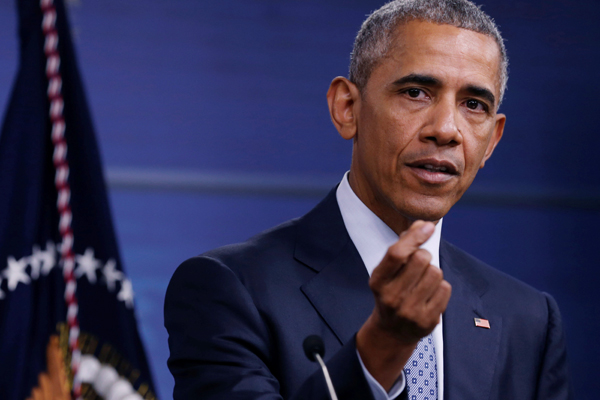 |
|
File photo shows US President Barack Obama holds a news conference at the Pentagon in Arlington, Virginia, US, August 4, 2016. [Photo/Agencies] |
US President Barack Obama is going to leave the White House and quite a few legacies, such as the Paris Climate Agreement, nuclear deal with Iran, and the reconciliation with Cuba, in four months. But he will also leave as many controversies behind.
In the United States, for instance, Obama's unprecedented legislation on healthcare has advanced the agenda of progressiveness, but it has also divided the US on partisan lines. Externally, his willingness to "reset" US relations with Russia has resulted in a treaty to further reduce nuclear weapons, but relations between Washington and Moscow have worsened due to Crimea crisis.
The same applies to the Obama administration's relations with China. Despite his initial earnestness to usher in a strategic dialogue with China, he has ended up weaving a network to counter China. Obama's rebalancing strategy to deploy some 60 percent of the US navy and air force overseas in the Asia-Pacific region is aimed at checking China's rise. And his Trans-Pacific Partnership agreement is designed to boost US competitiveness in exports and investments, at China's cost.
Nevertheless, the legacy of Obama's rebalancing strategy will not last long. Whether Republican Donald Trump or Democrat Hillary Clinton succeeds him, Obama's TPP is unlikely to be inherited in its current form by the next US administration. Trump, if elected US president, is more likely to put aside TPP.
In this sense, Obama's Asia tour, with visits to Hangzhou for the G20 Summit and Vientiane for the East Asia Summit, could be the beginning of the end of his rebalancing to Asia-Pacific strategy. Neither Obama's TPP and Transatlantic Trade and Investment Partnership plans are likely to yield results-even if Clinton succeeds him-nor is the US military pressure expected to produce the results Obama expects.
Obama should have realized that as the second-largest economy, China is not a country that can be coerced into accepting unfair economic and political conditions.
- Obama cancels stop after Duterte's barbs
- Obama thanks Xi for helping manage issues
- Obama, Putin meet on G20 sidelines over Syria, Ukraine
- Xi, Obama hail expansion of dialogue, commit to climate deal
- Xi, Obama commit to climate deal
- Xi urges enhanced trust in meeting with Obama
- Xi urges enhanced trust in meeting with Obama
- Xi tells Park China opposes deployment of THAAD in ROK
- Singapore confirms 27 new cases of Zika infection
- Russia, Britain agree to mend ties
- EU can't leave entire migration issue to mediterranean countries: official
- Rousseff appeals impeachment to Supreme Court
- Europeans displeased with their education systems

 First Ladies shopping in Hangzhou
First Ladies shopping in Hangzhou
 Flower children greet world leaders in Hangzhou
Flower children greet world leaders in Hangzhou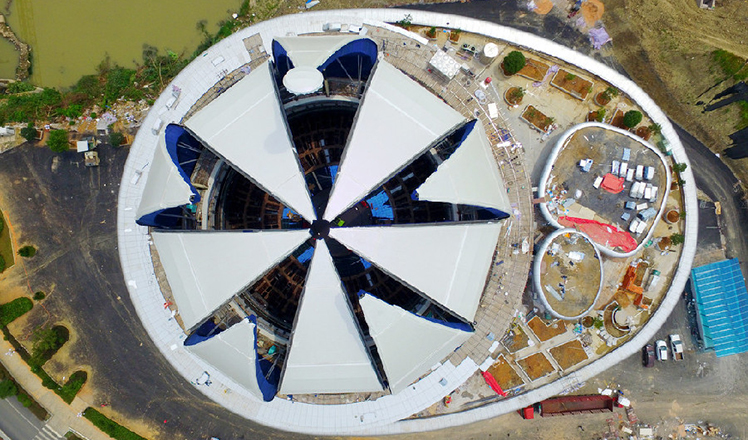
 World's largest transparent-domed bar under construction
World's largest transparent-domed bar under construction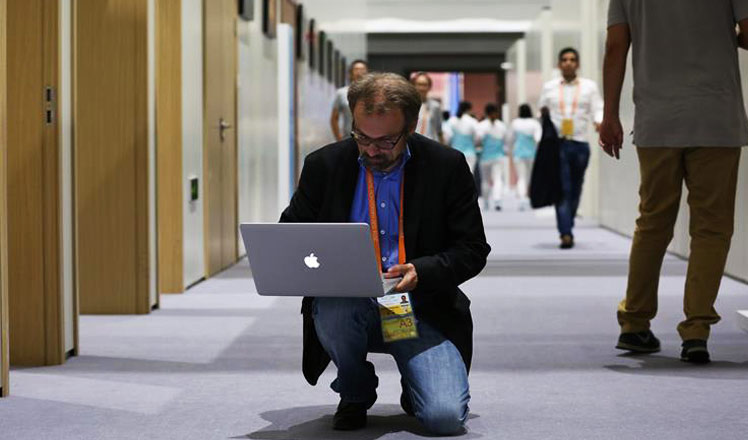
 In pics: Journalists cover G20 Summit in Hangzhou
In pics: Journalists cover G20 Summit in Hangzhou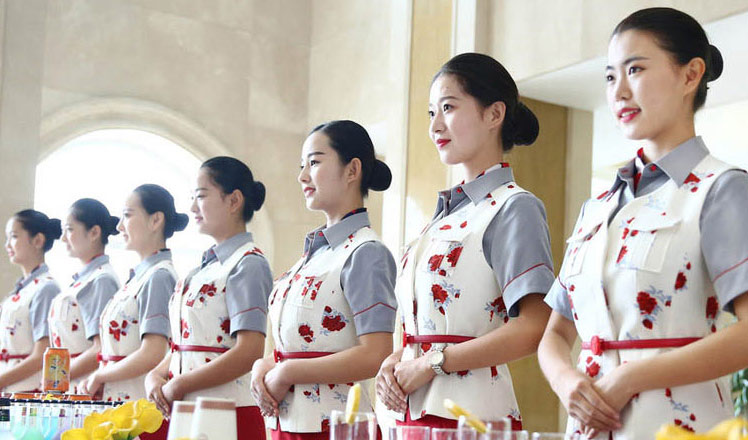
 Air attendant 'incubator' welcomes freshmen
Air attendant 'incubator' welcomes freshmen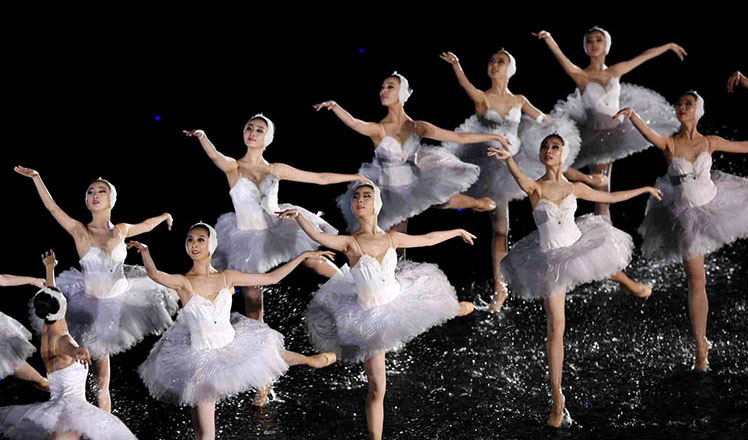
 Evening gala for G20 summit held in Hangzhou
Evening gala for G20 summit held in Hangzhou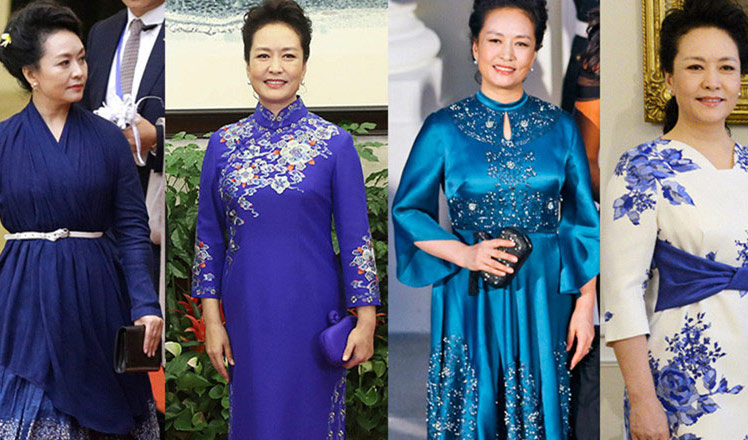
 First Lady fashion: Rhapsodies in blue
First Lady fashion: Rhapsodies in blue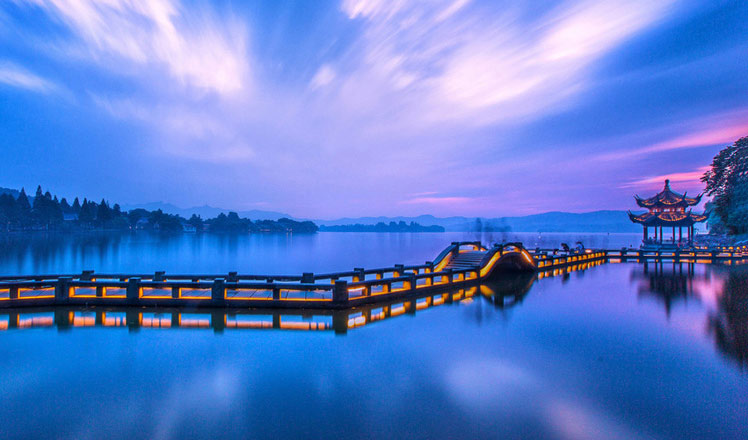
 Hangzhou: A city of bridges in East China
Hangzhou: A city of bridges in East China
Most Viewed
Editor's Picks

|

|

|

|

|

|
Today's Top News
Trump outlines anti-terror plan, proposing extreme vetting for immigrants
Phelps puts spotlight on cupping
US launches airstrikes against IS targets in Libya's Sirte
Ministry slams US-Korean THAAD deployment
Two police officers shot at protest in Dallas
Abe's blame game reveals his policies failing to get results
Ending wildlife trafficking must be policy priority in Asia
Effects of supply-side reform take time to be seen
US Weekly

|

|







